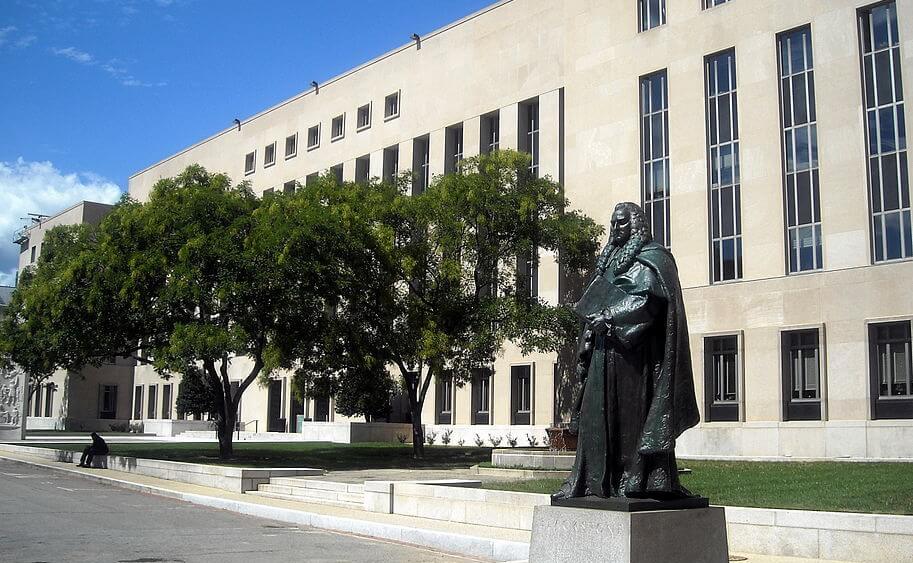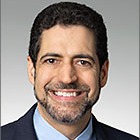D.C. Circuit Hears Oral Argument in Bahlul v. United States
The latest appeal, one in a long line of many, raises again an interesting issue about whether the military commission convening authority is properly appointed under the U.S. Constitution.

On March 22, the U.S. Court of Appeals for the District of Columbia Circuit heard oral argument in Bahlul v. United States. The appeal raises again an interesting issue about whether the military commission convening authority is properly appointed under the U.S. Constitution.
As background, Ali Hamza Ahmad Suliman al Bahlulis a Yemeni citizen. He swore an oath of loyalty to Osama bin Laden, received paramilitary training at an al-Qaeda camp, and eventually led al-Qaeda’s propaganda efforts. Bahlul also served as bin Laden’s personal assistant and public relations secretary. Before al-Qaeda’s September 11, 2001, terrorist attacks on the United States, Bahlul arranged loyalty oaths for two of the hijackers. Immediately after the attacks, Bahlul operated the radio that bin Laden used to track the news of the attacks. Bahlul fled to Pakistan, where he was captured in December 2001. He was brought to and remains in custody at Guantanamo Bay.
The then-military commission convening authority, Susan Crawford, convened a military commission to try Bahlul under the 2006 Military Commissions Act for conspiracy to commit war crimes, solicitation of others to commit war crimes, and providing material support for terrorism. The substantive offenses underlying the conspiracy and solicitation charges were murder of protected persons, attacking civilians, attacking civilian objects, murder and destruction of property in violation of the law of war, terrorism, and providing material support for terrorism. The conspiracy charge and the other charges were based largely on the same conduct, including Bahlul’s military training at an al-Qaeda camp, swearing loyalty to bin Laden, performing personal services for bin Laden, carrying of weapons and a suicide belt to protect bin Laden, arranging for two of the 9/11 hijackers to swear loyalty to bin Laden, and preparing the hijackers’ “martyr wills.”
The military commission convicted Bahlul of all the charges. Using a detailed findings worksheet, the commission specifically found that Bahlul conspired to commit each of the seven object offenses underlying the conspiracy and solicitation counts, including murder of protected persons and attacking civilians. The members also found that Bahlul committed each of the alleged overt acts, except for wearing a suicide belt to protect bin Laden. The military commission sentenced Bahlul to life imprisonment, and, in her role as the convening authority, Susan Crawford approved the findings and sentence.
Since that conviction, Bahlul’s case had been upanddownon appeal several times. In 2014, the D.C. Circuit vacated the charges for solicitation and providing material support, leaving only the conspiracy charge. The court of appeals remanded the case to the United States Court of Military Commission Review (USCMCR) for the limited purpose of determining whether the vacatur of Bahlul’s convictions for solicitation and providing material support for terrorism should affect Bahlul’s sentence of life imprisonment. In 2019, the USCMCR reevaluated Bahlul’s sentence and affirmed.
On appeal from that USCMCR ruling, in 2020, the D.C. Circuit rejected a new challenge by Bahlul that the convening authority was a principal officer under the U.S. Constitution’s Appointments Clause who must be, but was not, appointed by the president with the advice and consent of the Senate. The D.C. Circuit rejected that challenge, holding that the convening authority was an inferior officer whose appointment by the secretary of defense was consistent with the Appointments Clause. The D.C. Circuit, however, remanded the case to the USCMCR for further consideration of Bahlul’s sentence to determine whether the error allowing the other now-vacated charges to go to the commission was harmless beyond a reasonable doubt. On remand, the USCMCR found that the commission’s findings showed that the errors were harmless.
That then brings us to the present appeal, in which Bahlul is again challenging whether the convening authority was properly appointed and is also challenging the harmless error determination.
The appeal was argued before D.C. Circuit Judges David Sentelle, Gregory Katsas, and Florence Pan. Bahlul made a motion before oral argument, asking Katsas to recuse himself based on his roles in the government relating to the Guantanamo litigation, but Katsas rejected that motion.
In his brief and at oral argument, Bahlul’s counsel, Michel Paradis, argued that, on its merits, a new decision from the Supreme Court on the Appointments Clause, in United States v. Arthrex, 141S. Ct. 811 (2020), means the convening authority must be deemed to be a principal officer and that Arthrex required that the Court now reject its prior ruling on this very issue. Paradis noted that the D.C. Circuit’s prior decision recognized that several of the convening authority’s most consequential decisionswere “unreviewable” by any executive branch official.
Bahlul argued that after Arthrex, such unreviewable, consequential decisions required that the convening authority be a principal offer, appointed by the president and confirmed by the Senate.
At oral argument, the judges seemed skeptical of the request for it to overrule itself on this Appointments Clause issue based on Arthrex. Pan emphasized that the court could not revisit this issue unless Arthrexclearly changed the law. And Katsas suggested that, even under Arthrex, there was no requirement of total control of inferior officers by higher level executive branch officials. Katsas also thought that the remedy for an Appointments Clause violation might not help Bahlul. However, Paradis explained that if the convening authority’s appointment was improper, then the charges would have to be reissued or dismissed.
It is possible that once the D.C. Circuit digs in more on the Appointment Clause issue, it will see it as having more force. Arthrexmakes it clear that if an officer has power to “bind the Executive Branch to exercise executive power in a particular manner” on significant matters, without review by anyone up the food chain, the officer needs to be appointed by the president and confirmed by the Senate. The Supreme Court explained that giving an inferior officer such powers “blur[s] the lines of accountability demanded by the Appointments Clause.” The whole point of the clause, according to the Court, is political accountability.
Here, the unreviewable powers of the convening authority undercut that aim of political accountability. Let’s say, for example, the convening authority decided to commute a death sentence of a 9/11 mastermind, Khalid Sheikh Mohammed, or to modify charges against him to take the death penalty off the table. That would be pretty controversial. Under the current construct, however, the president and his appointees could say, “We have no control over the convening authority and her decisions about such matters.” If the convening authority was appointed by the president, such distancing would be ineffective—ultimately the president would be held politically accountable for the acts of his appointees.
Those types of considerations, and the need for political accountability, should resonate with these judges if they can be convinced that Arthrex made material changes to the applicable legal standard.
The other primary issue argued by Bahlul on appeal was the harmless error issue. And on that issue, the panel at oral argument seemed much less receptive. Pan highlighted how the commission jury here made specific findings that strongly support the conclusion that the jury would have reached the same result and life sentence if faced only with the conspiracy charge.
The D.C. Circuit panel, if ruling against Bahlul, could possibly issue a decision pretty quickly, but more likely the decision will take two to six months to be released. If Bahlul loses, he might then seek further review from the full court on the Appointments Clause issue.


.jpg?sfvrsn=d5e57b75_7)


